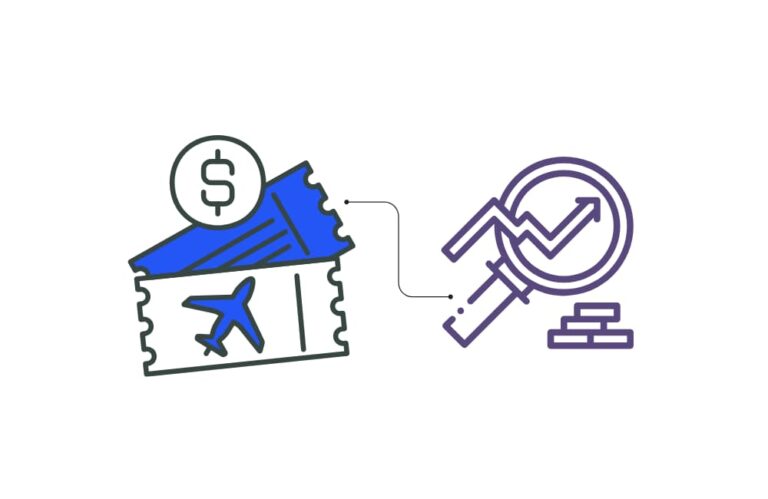How Data Intelligence Elevates Airline Operational Efficiency?
In the airline industry, every decision can impact hundreds of lives and millions in revenue.
That’s why operational efficiency is a cornerstone of survival and success for airlines.
Data intelligence plays a significant role in transforming vast amounts of raw data into actionable insights.
Airlines equipped with these insights can predict maintenance needs, optimize fuel usage, and ensure optimal staffing—critical factors that drive punctuality, safety, and customer satisfaction.
Plus, with data intelligence airlines can also reduce flight delays by accurately forecasting weather patterns or enhancing route planning to save on fuel costs.
Continue reading to dive deeper into how data intelligence is revolutionizing the airline industry and learn how you can leverage these insights to propel your airline business ahead in a competitive market.
How Data Intelligence Affects Airline Operations
Data intelligence is helping airlines to work smarter and take action faster.
Let’s explore how this technology plays a key role in different areas of the aviation industry:
1. Flight Scheduling and Route Planning
Flight scheduling and route planning are critical aspects of the aviation industry that ensure that airlines operate efficiently and passengers reach their destinations on time.
At its core, flight scheduling involves determining the timing of each flight, including when and where each plane should depart and arrive. Route planning, on the other hand, is about finding the best paths for these flights it also considers factors like air traffic, weather conditions, and fuel efficiency.
To get flight status and schedule data for schedule optimization and route planning, airlines use APIs. You can explore this travel API provider list to find the most suitable solutions for your operational needs.
Here’s a closer look at both the schedule and status APIs:
Flight Tracking API:
By using the Flight Status API, an airline can monitor the status of its flights in real-time and get crucial details such as scheduled, actual departure, and arrival times, as well as terminal and gate information.
For instance, if an airline wants to track a specific flight, it can easily access the API to retrieve the flight’s current status, whether it has departed on time, or if there have been any delays.
Additionally, the API provides gate information which assists the ground crew in preparing for the flight’s arrival, facilitating efficient gate management which ensures that the necessary services, such as baggage handling and passenger boarding bridges, are ready when the aircraft arrives.
This level of detail helps airlines optimize their crew scheduling and resource allocation and keeps passengers well-informed about any changes to their travel itinerary that improve their overall travel experience. You can even track flight status with Google Sheets by integrating this API into a spreadsheet setup for easy monitoring and sharing. To learn more about the flight status API, check out the documentation.
Airport Schedule API:
The Airport Schedule API offers airlines a comprehensive overview of airport schedules that provides information for both arrivals and departures.
This API can provide the complete schedule of an airport for up to five days in the past and five days in advance, which greatly aids in operational planning and resource allocation.
For example, an airline using this API can access a detailed list of scheduled departures and arrivals over the coming days.
This visibility allows the airline to efficiently manage and allocate its resources during peak times by adjusting staffing levels, optimizing check-in counters, and coordinating necessary ground services.
This proactive management helps in smoothing passenger flow and minimizing congestion which leads to a more efficient airport operation and an enhanced passenger experience. To learn more, check out the documentation.
2. Fuel Management
Fuel management is a big deal for airlines because fuel is one of their largest expenses. Data intelligence steps in to help by analyzing loads of information to find ways to save fuel.
It looks at things like the type of aircraft, the weather, and how much fuel was used on previous flights to figure out the most fuel-efficient routes and ideal flying speeds.
This smart use of data helps airlines cut costs significantly by reducing fuel waste which makes flights more economical.
3. Fleet Management
Fleet management is crucial for keeping an airline’s planes running smoothly and safely.
By using data intelligence, airlines can predict when a plane might need maintenance before any issues arise.
This is done through predictive analytics, which looks at data from past flights to spot possible future problems.
This proactive strategy not only keeps the planes in top condition but also reduces unexpected downtime to make sure that planes are ready to fly when needed.
4. Enhance Customer Service
Data intelligence boosts customer service and satisfaction by using information gathered from past interactions.
Airlines analyze this data to understand what travelers like and need.
They can then personalize everything from travel recommendations to special deals and even the in-flight services offered on specific routes, often using tools like a flight price predictor to tailor offers based on fare trends, customer preferences, and dynamic airline pricing strategies.
This customization makes flying a much better experience for passengers to increase their satisfaction and encourages them to stick with the airline for future trips.
It’s all about making each traveler feel special and well cared for from start to finish.
Conclusion
Data intelligence dramatically improves the way airlines operate.
It helps manage everything from fuel consumption to customer service which makes processes more efficient and cost effective. In addition to that, it also makes travelers happier by ensuring a smoother, more personalized experience.
So, If you want to boost your airline’s efficiency and customer satisfaction? Start leveraging data intelligence now and transform your operations for the better.







